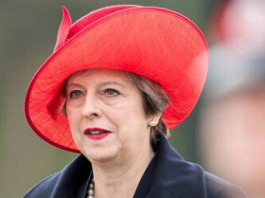
U.K. Prime Minister Theresa May’s announcement of snap polls caught many off guard as she had earlier insisted that no election would take place before 2020.
Holding — and winning an election — would enable Ms. May to address one of her biggest weaknesses, often pointed to by critics at a time when Britain is expected to be ‘taking control” by exiting the European Union (EU). Unlike her predecessor David Cameron, Ms. May was not elected as Prime Minister, but came to the position after rivals pulled out. It will also enable her to set her own policy agenda rather than be bound by that on which Mr. Cameron built his electoral platform in 2015, the year before the Brexit referendum.
Ms. May differs from Mr. Cameron on a number of counts. On education, she is championing an introduction of selective secondary school education. When it comes to immigration, she is far tougher, and has insisted on keeping international student numbers within the migration figures.
Ahead in polls
However, the election also comes as a political gamble. While recent opinion polls have put Ms. May comfortably ahead of Labour leader Jeremy Corbyn, polls at the time of the previous elections (and the EU referendum) had proved to be fairly unreliable indicators.
There is also a chance that the elections could see the resurgence of the Liberal Democrats. Polls on a by-election in Manchester due to take place next month suggest that they have made big strides, and potentially pose a threat to Labour’s dominance in the constituency. The Scottish National Party (SNP) could also retain its hold over the Scottish seats in Westminster, which could be seen as a validation of First Minister Nicola Sturgeon’s call for a second Scottish Referendum.
Legislation that came into effect in 2011 requires fixed term Parliaments and elections every five years from 2015 onwards, though a clause under it enables Parliament to be dissolved, triggering an election, if two-third of members at the House of Commons agrees to it. Ms. May said she would be bringing a motion to the House on Wednesday, with Opposition parties indicating that they would support the motion.
Labour leader Jeremy Corbyn welcomed the decision to hold an election, which he said would give “the British people a chance to vote for a government that will put the interests of the majority first.”
“Labour will be offering the country an effective alternative to a government that has failed to rebuild the economy, delivered falling living standards and damaging cuts to our schools and NHS,” he said.
Tim Farron, leader of the Liberal Democrats, who have campaigned for a referendum to be held on the terms of Brexit, said the election proved a chance to change the country’s direction. “If you want to avoid a disastrous hard Brexit. If you want to keep Britain in the single market. If you want a Britain that is open, tolerant and united this is your chance. Only the Liberal Democrats can prevent a Conservative majority,” he said.
























